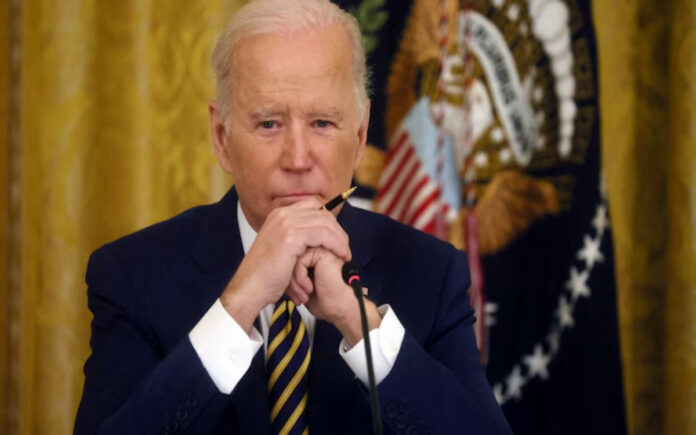Washington, D.C.: US President Joe Biden has signed into law a landmark bill aimed at bolstering US support for Tibet and facilitating dialogue between China and the Dalai Lama to peacefully resolve longstanding disputes over the region’s governance. The Resolve Tibet Act, despite facing strong opposition from China which labeled it destabilizing, was overwhelmingly passed by the House of Representatives in February and subsequently cleared the Senate in May.
In a significant late-night statement on Friday, Biden underscored the bipartisan commitment of Congress to advancing the rights of Tibetans and preserving their unique linguistic, cultural, and religious heritage. “Today, I have signed into law S. 138, the ‘Promoting a Resolution to the Tibet-China Dispute Act’ (the ‘Act’),” Biden announced. He reiterated his administration’s call for China to engage in direct, unconditional dialogue with the Dalai Lama or his representatives to seek a mutually acceptable resolution for Tibet.
The 14th Dalai Lama fled Tibet in 1959 and established the Tibetan government-in-exile in Dharamshala, India. Despite nine rounds of dialogues between the Dalai Lama’s representatives and the Chinese government from 2002 to 2010, no concrete agreement was reached.
Also Read | Paris Olympics: French Sports Minister Takes Plunge in Seine River
China views the 89-year-old spiritual leader, currently residing in India, as a separatist figure seeking to divide Tibet from China. However, the Act reaffirms the longstanding US policy recognizing the Tibet Autonomous Region and other Tibetan areas as integral parts of China, emphasizing Biden’s authority to acknowledge foreign states and their territorial boundaries.
The Act further empowers the US State Department to actively combat disinformation propagated by the Chinese government regarding Tibet. It rejects historical claims that Tibet has always been a part of China and advocates for negotiations without preconditions between the Chinese government and the Dalai Lama, his representatives, or democratically elected Tibetan leaders. Additionally, it mandates the State Department to coordinate with international partners to facilitate multilateral efforts towards a peaceful resolution of the Tibet issue.
Also Read | Pakistan and IMF Agree on $7 Billion Aid Package for Economic Recovery
In June, China voiced opposition to the bill, with Chinese Foreign Ministry spokesman Lin Jian warning, “Anyone or any force who attempts to destabilise Xizang to contain or suppress China will not succeed.” He added, “The US should not sign the bill. China will take resolute measures to defend its sovereignty, security and development interests.”
Simultaneously, the US State Department imposed visa restrictions on several Chinese officials implicated in the repression of marginalized religious and ethnic communities. State Department spokesperson Matthew Miller condemned China’s human rights record, citing ongoing atrocities in Xinjiang, erosion of freedoms in Hong Kong, and persistent human rights abuses in Tibet. Miller urged China to uphold the principles of the Universal Declaration of Human Rights and implement recommendations from recent human rights reviews, including the unconditional release of arbitrarily detained Chinese nationals.



